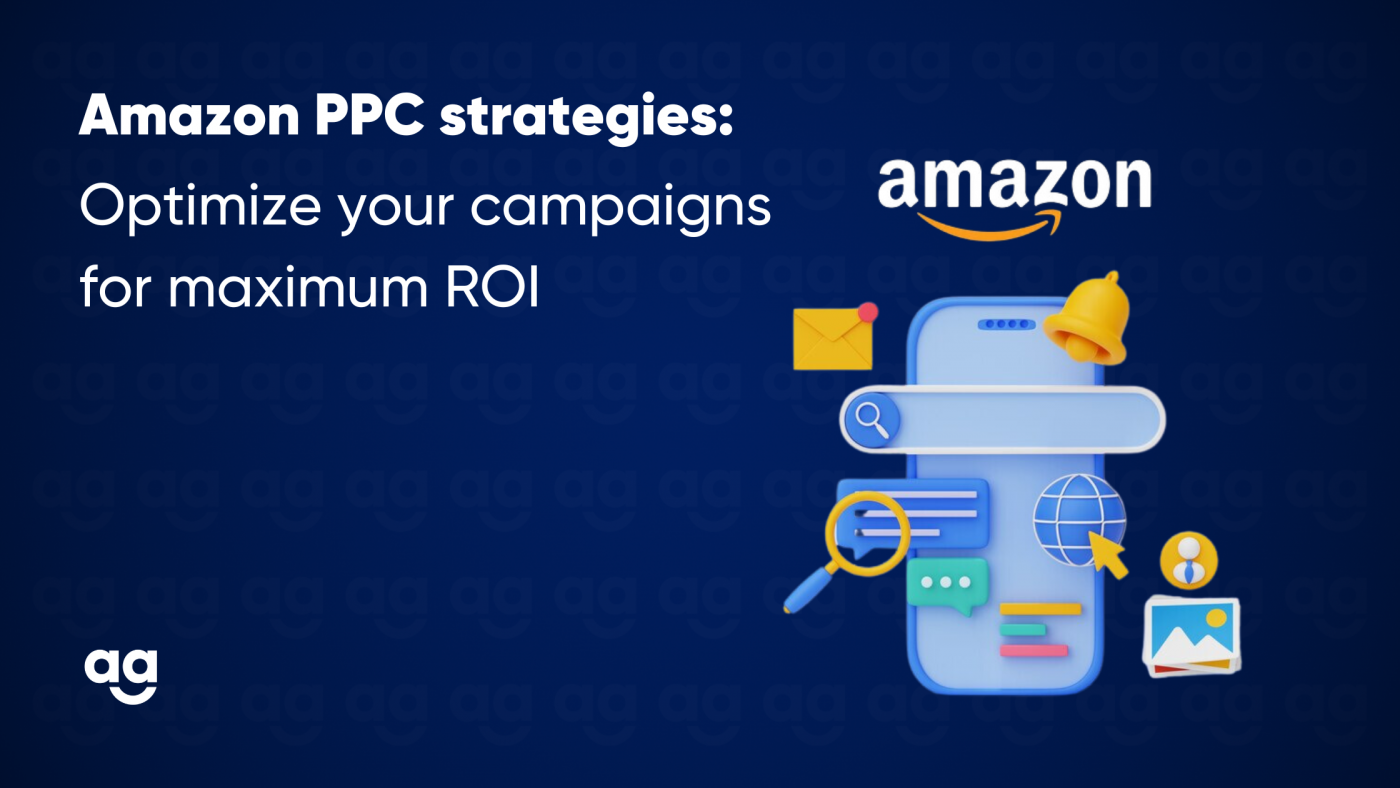Introduction
A robust Amazon PPC campaign is imperative to thrive on Amazon in 2024 and beyond. Amazon Pay-Per-Click (PPC) is a crucial attribute of the platform’s advertising system. It empowers sellers to target specific keywords, placing custom product ads in competitors’ listings and search results.
Employing different Amazon PPC strategies is a gateway to exposure to potential buyers at the point of sale and optimizes the conversion rate. Almost 75% of Amazon sellers employ Amazon PPC campaigns. Hence, performance analysis is crucial.
Mastering eCommerce PPC management is indispensable for third-party sellers, agencies, and brands seeking success on the platform.
What is Amazon PPC?
Amazon PPC functions as an advertising medium for third-party sellers on Amazon. It enables sellers to initiate Amazon PPC campaigns, incurring charges for every click and ad view by potential customers. It has four metrics. These include:
- Advertising Cost of Sales (ACOS): The percentage of attributed sales employed in advertising. Here’s how it’s calculated: total ad spend divided by attributed sales.
- Attributed Sales: This refers to the total product sales from clicks on ads weekly. Sales data usually takes up to 48 hours to reflect.
- Impressions: This is the number of times your ads were displayed. It may take up to three days to filter the invalid clicks.
- Clicks: Clicks are the number of times users click on your ads. It may take up to three days to filter the invalid clicks.
Tips to Create Amazon PPC Strategies
Formulating a robust Amazon PPC management strategy involves:
- Experimentation: Explore different PPC ad types and test manual or automatic keyword targeting to determine the most effective Amazon PPC campaigns for your brand.
- Research: Conducting comprehensive keyword research using tools to learn about competitor products and related keywords.
- Budget: Initially, set the daily budget and default bids 50%-100% more than Amazon’s recommendations.
- Duration: Let ad campaigns run for two weeks before analyzing reports and making adjustments.
- Campaign types: Employ automatic campaign reports to identify keywords for manual campaigns. Ensure a keyword receives at least ten clicks before removing or adjusting it.
- Review: Regularly review ad reports, at least weekly, making keyword subtractions, additions, and adjustments as needed.
Top Amazon PPC Strategies To Boost Sales
Amazon PPC campaigns are a crucial element of advertising. So, precision is imperative. Moreover, optimizing eCommerce PPC management strategies is necessary for optimal results, especially in this fiercely competitive marketing.
Below are some steps for notable enhancements in ACoS and maximizing the impact of ad expenditure.
1. Strategic Goal Setting
Align the Amazon PPC campaigns with the primary business objectives, such as brand awareness, cross-selling, or market dominance. Personalize the actions based on these goals to ensure focused results.
2. Effective Campaign Structure
Organize the Amazon PPC campaigns logically, separating products and ensuring detailed but consistent conventions. Use different ad groups for various targeting types for seamless performance and to avoid confusion.
3. Keyword Optimization
Boost product listings by incorporating high-performance keywords identified through reliable online tools. Optimize descriptions, titles, and bullet points for better visibility.
4. Leverage Auto-Campaign Insights
Dig successful keywords from auto-campaigns and incorporate them into manual campaigns for increased performance. Shift high-converting search terms to exact matches for optimized RoAS.
5. Negative Targeting Efficiency
Eliminate wasteful ad spending by identifying and adding underperforming or irrelevant keywords as negatives. Streamline Amazon PPC campaigns by focusing on the best-performing targeting options.
6. Target ACoS-based Bidding
Compute target ACoS, know the current ACoS levels, and adjust the bids accordingly for proper eCommerce PPC management. Increase bids for low ACoS, decrease them for high ACoS, and cease Amazon PPC campaigns with low ROI to optimize budget allocation.
7. Peak Hour Budget Allocation
Study the sales data to pinpoint peak conversion time and allocate higher ad budgets during these periods.
8. Bid on Alternative Keywords
Capitalize on successful keywords by aggressively bidding on alternatives with high conversion rates. Try to amplify organic rankings and diversify traffic sources.
9. Top Placements and Branded Keywords
Align bidding for top search placements with targeting branded keywords based on your advertising goals. Further, avoid redundancy by altering the Amazon PPC management strategies per the existing organic rankings.
10. Strategic Sponsored Brand Ads
Feature high-converting, top-selling, newly-launched products strategically to optimize sponsored brand ads.
11. Bid High on Targeted Products
Identify top-converting products in targeting reports and aggressively bid on them in product targeting campaigns. Allocate budgets as per performance to maximize RoAS.
12. External Traffic Product Targeting
Run Product Attribute Targeting (PAT) campaigns on product listings with existing traffic. Pay attention to customers actively seeking your product to capitalize on the ad expense and boost conversions.
Final Words
Mastering Amazon’s PPC strategies is the apex for the sellers navigating this competitive landscape. Sellers can amplify sales and boost ROI by aligning campaigns with business goals, leveraging insightful data, and optimizing keywords.
Accordingly, with the evolution of the eCommerce landscape, it is imperative to formulate strategic approaches.
We at Shipyaari, an esteemed shipping partner on Amazon’s platform, advocate for holistic marketplace utilization, seamlessly integrating with these strategies. It is our firm belief that effective PPC management is not just a strategy but a pathway to sustained success.







 Shipping
Shipping







